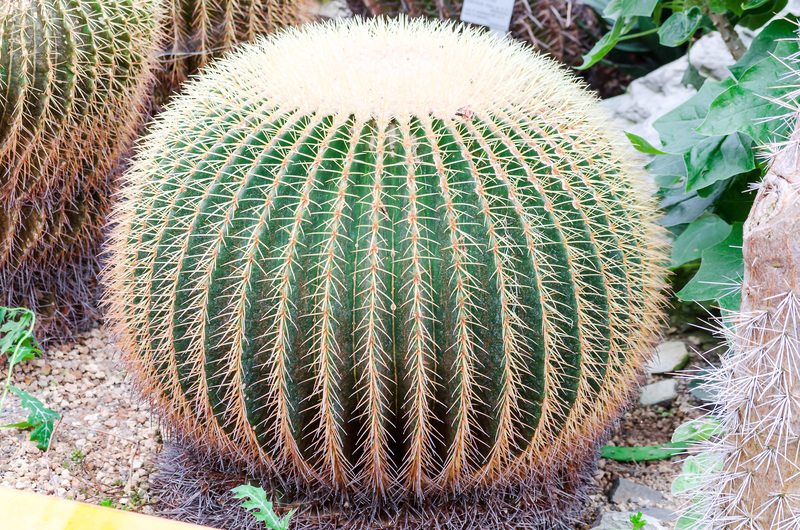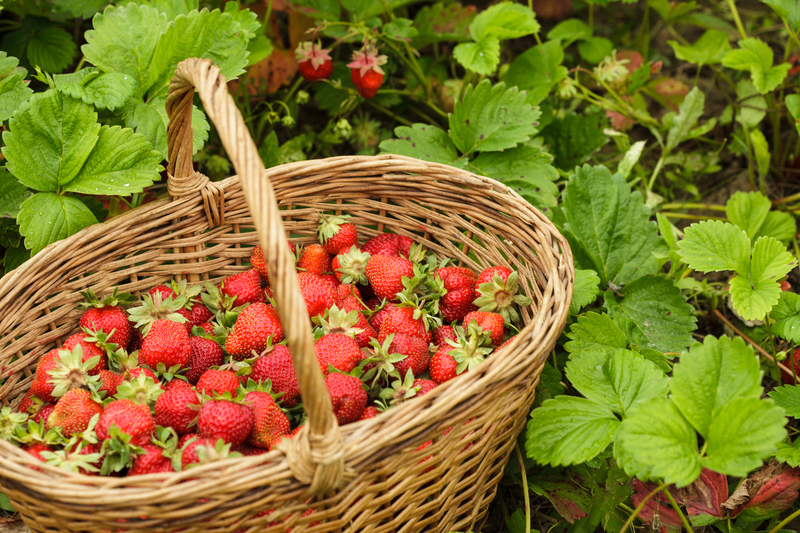Intriguing Hedge Trimming Styles to Experiment
Posted on 07/09/2025
Intriguing Hedge Trimming Styles to Experiment: Elevate Your Garden Design
Maintaining hedges is not just about keeping your landscaping neat--it's also an art form. The wide variety of hedge trimming styles enables gardeners to express creativity, optimize garden privacy, or make a bold visual statement. With so many innovative and intriguing ways to trim hedges, homeowners and gardening enthusiasts have abundant options to experiment with. This comprehensive guide explores unique, imaginative, and classic geometric hedge cutting techniques to enhance your outdoor spaces. If you're seeking inspiration or practical guidance, keep reading to discover fascinating hedge pruning styles you can try this season.

Why Experiment With Unique Hedge Trimming Styles?
The art of hedge shaping has evolved from traditional square and round forms to sophisticated designs that reflect individual personality and creativity. Innovative hedge designs can:
- Increase curb appeal and garden aesthetic
- Provide unique privacy solutions
- Encourage healthy plant growth
- Cater to various landscape themes (from modern minimalism to whimsical fairy-tale)
- Allow you to showcase personal style in outdoor spaces
The Benefits of Diverse Hedge Styles
Switching up your hedge pruning techniques is not purely aesthetic. It can benefit your horticultural endeavors by improving sunlight exposure, increasing airflow, and deterring pests. Many unconventional hedge trims integrate gardening principles that promote stronger, more resilient greenery.
Classic Geometric Hedge Trimming Styles
Before venturing into the more unusual hedge designs, let's review some classic shapes that provide a solid foundation for creativity. Each geometric shape has advantages depending on your goals and maintenance effort.
1. The Formal Square or Rectangular Hedge
Perhaps the most common and traditional hedge trimming style, the squared hedge keeps things formal and neat. It is ideal for defining pathways, fences, or property boundaries. This style works well with boxwood, privet, and yew.
- Offers a manicured, structured look
- Easy to maintain with regular trimming
2. Rounded or Dome-Shaped Hedges
Curving the tops and sides produces soft, inviting lines in your garden beds. Dome shapes are easier to maintain than sharp-angled formal hedges, making them a favorite among gardeners who prefer a more naturalistic approach.
- Accentuates flowering and colored foliage
- Prevents heavy snow build-up on winter hedges
3. Sloping or Tapered Styles
For a unique hedge trimming alternative, consider tapering the sides so the base is wider than the top. This shape ensures lower foliage receives enough light, resulting in fuller hedges throughout.
- Promotes hedge health and density
- Makes a subtle yet elegant statement
The Art of Topiary: Transformative Hedge Trimming Techniques
Moving beyond traditional forms, topiary hedge trimming introduces creative artistry into garden landscapes. Topiary is the practice of shaping shrubs and trees into ornamental designs, ranging from geometric to highly imaginative forms.
4. Animal and Fantasy Figures
This style grabs imaginative attention like no other. From playful rabbits to majestic peacocks, animal-shaped hedges delight children and adults alike. Topiary artists can also create mythical forms like dragons or unicorns, offering a unique garden showpiece.
- Perfect for themed gardens or children's areas
- Showcases high skill and patience in trimming
5. Spiral and Corkscrew Hedges
These intriguing hedge designs create dynamic movement in your garden. A spiral or corkscrew effect can be achieved on upright shrubs, making them ideal as entryway accents or focal points in symmetrical landscapes.
- Works beautifully with yew, boxwood, or juniper
- Adds vertical interest and sophistication
6. Geometric and Abstract Shapes
Bring a touch of modern art to your garden with bold cubes, cones, spheres, pyramids, or zig-zag forms. Abstract topiary is often used in contemporary landscapes.
- Makes a strong visual impact with minimal greenery
- Can be tailored to fit a custom garden theme
Modern Intriguing Hedge Trimming Approaches
Contemporary garden design celebrates diversity and creativity in the landscape. Discover these modern hedge trimming variations to experiment with for a truly unique outdoor space.
7. Wavy and Undulating Lines
Break away from the rigidity of straight lines by sculpting your hedge into a wavy, serpentine pattern. This approach adds flow and a sense of movement to your garden.
- Great for bordering lawns or driveways
- Softens the overall appearance of the landscape
8. Layered "Step" Hedges
Layering multiple heights in a series--either staggered or with even "steps"--creates a dramatic stair-case effect. This is an excellent method for sloped yards or subdividing garden zones.
- Differentiates various garden sections elegantly
- Highlights feature plants or architectural elements
9. Hedge Windows or Cut-Outs
Introduce surprise by cutting geometric or organic "windows" into thick hedges. These intentional gaps can frame statues, water features, or beautiful vistas beyond your yard.
- Adds intrigue and visual depth
- Encourages playful exploration of the garden
Hedge Trimming for Functional Purposes
Many hedge cutting styles are aesthetically pleasing, but some intriguing hedge trimming ideas serve functional benefits. Experiment with these useful approaches:
10. Living Fences and Green Privacy Walls
Create a natural boundary using tightly clipped, tall hedges. These living walls offer privacy, noise reduction, and windbreaks, without the harshness of solid fencing materials.
- Bamboo, privet, or laurel are popular choices
- Can be shaped into arches or soft undulations
11. Archways and Tunnels
Arched or tunnel-like hedge structures are deeply atmospheric, transporting you into a secret garden with every pass. These enchanting shapes invite curiosity and journey into your landscape.
- Clematis or climbing roses can be grown alongside for added color
- Ideal for leading between two distinct garden zones
Unconventional and Artistic Hedge Shaping Styles
If you're daring to transform your garden into a true conversation piece, these unconventional hedge styles might spark your creative vision.
12. Mosaic Hedge Trimming
Combining different hedge varieties or allowing certain sections to flower creates a mosaic or patchwork effect. Experiment with leaf color, height, and even texture for a dramatic composition.
- Perfect for large landscape displays
- Requires careful planning and ongoing maintenance
13. Sculpted Art Forms
Go beyond traditional figures and create one-of-a-kind shapes inspired by modern art or abstract expressionism. Think waves, hearts, or even musical notes.
- Reflects the gardener's personality and interests
- Attracts attention and admiration year-round
14. Seasonal and Themed Designs
Craft hedges into temporary shapes that change with the seasons or special occasions--hearts for Valentine's Day, stars for festive holidays, or spooky figures for Halloween.
- Encourages frequent and thoughtful pruning
- Keeps your outdoor space fresh and suited to festivities
Essential Tips for Experimenting With Intriguing Hedge Trimming Styles
- Choose the right plant species--Some shrubs and trees handle extensive shaping better than others (boxwood, privet, yew, holly, hornbeam, and laurel are excellent for intricate designs).
- Start with clean, sharp tools for accurate cuts and hedge health.
- Map out your desired shape with string, stakes, or chalk marks for symmetrical designs.
- Trim regularly to train your hedge into the desired shape, especially in the first few seasons.
- Be patient--spectacular results come with practice and persistence.
Common Mistakes to Avoid
If you're new to creative hedge design, avoid these frequent pitfalls:
- Over-trimming, which can stress the plant
- Neglecting the importance of light and airflow
- Choosing unsuitable plant varieties

Frequently Asked Questions (FAQ) About Intriguing Hedge Trimming Styles
What's the best time to experiment with new hedge shapes?
The ideal time depends on the species. For most evergreen hedges, late spring to early summer is perfect, while deciduous hedges are best trimmed in late winter or early spring. Avoid harsh trimming during extreme weather conditions.
Are there any tools specifically for ornate trimming?
Yes! While standard hedge shears work for basic shapes, topiary artists often use smaller, curved shears, secateurs, and even electric trimmers with precision heads for complex forms.
Can I revamp an old, overgrown hedge into a new style?
Absolutely! With patience and careful pruning over several seasons, you can reshape mature hedges. Start by removing dead or woody branches, then gradually trim toward your desired form.
Conclusion: Dare to Explore Unusual Hedge Trimming Styles
Experimenting with intriguing hedge trimming styles allows you to make the most of your garden's potential. From classic geometric shapes to elaborate topiary, whimsical figures, and modern abstract forms, the choices are endless. Gardening is a creative journey, and your hedges are a living canvas--so don't be afraid to try something new. Whether you aim for a formal look or wild artistic expression, varied hedge pruning styles can transform your outdoor space into something truly captivating. For more gardening inspiration and tips on creative hedge trimming, keep experimenting and let your landscape reflect your individuality.
- Remember: Choosing the right plant, patience, and regular maintenance are key ingredients for mastering any hedge design.
- Share your own hedge trimming experiments and tag us online for a chance to be featured!



